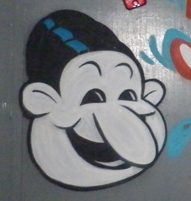People have a very low success rate at detecting lies, and training seems to make little difference, according to an investigative psychologist. Dr Chris Street of the University of Huddersfield is researching how people decide whether or not someone is lying to them. One source of funding for his work comes from a company that aims to stem the threat from phishing emails.
He gave an interactive demonstration at a science event in London last year, involving participants from the audience; that showed how difficult it is to tell when people are being untruthful. He suggests that traditional detection methods such as looking for shifty body language are ineffective. Better strategies are needed, Dr Street argues.
He is a Senior Lecturer in Investigative Psychology at the West Yorkshire uni, and Director of the Social Conflict Lab. Lie detection is his key research area and it led to an invitation to take part in SpotOn London, at the Francis Crick Institute. Titled Spotting Lies, Dr Street’s session was based on the newly-emerging Adaptive Lie Detector (ALIED) Theory. Briefly, we are biased to believe that what others are telling us is the truth. Researchers call this the “truth bias”. But why?
As for not detecting lies, this is not necessarily the result of doing the wrong thing, Dr Street says. “It is just that the information is not there in the environment. Liars are very good at what they do. They don’t give themselves away in any obvious fashion.”
Dr Street believes that people are not necessarily error-prone and are in fact adopting sensible strategies. But they need extra information – clues and cues – if they are to improve their success rate. Given a cue like Pinocchio’s nose, people can achieve near 100 per cent accuracy in detecting lies.
He says: “When you ask people what cues are useful for deception, they mention visual cues like eye contact, fidgeting and nervousness, but when you start noting down what they are actually doing when trying to check someone’s statement, they don’t use these cues. Instead they seek useful pieces of information that could corroborate a story. If that information is not present, accurate detection rates plummet. Unfortunately, people are skilled liars and so there are rarely useful pieces of information available.
“If we want to increase lie detection accuracy, we need to develop methods that generate individuating cues. That may mean encouraging speakers to include details that can be verified with documents.”










